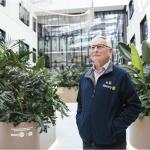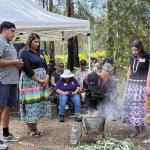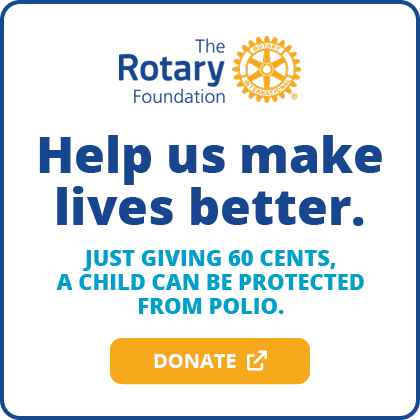Teaching children essential social and emotional skills to foster learning and encourage positive behaviour
Implementing school-based intervention programs to address issues related to PTSD and behavioural challenges in primary school children.
Dr Govind Krishnamoorthy, a clinical psychologist and senior lecturer at the University of Southern Queensland was granted a Mental Health Research Grant by Australian Rotary Health in 2023. His research has focussed on further developing Trauma-Informed Behaviour Support (TIBS), a school-based program he co-developed to address post-traumatic stress disorder (PTSD) and behavioural challenges in children aged five to 11.
The TIBS program has been implemented in Australian primary schools through both individual and group settings, helping children develop essential social and emotional skills that foster learning and promote positive behaviour, while providing educators and guardians with informed strategies to support these children effectively.
“By creating school-based programs and services, we can ensure that evidence-based interventions reach children when they need them most.”
“Children often do not receive the timely mental health support they require,” Dr Krishnamoorthy explains. “This issue is deeply intertwined with the design and capacity of our healthcare systems. By creating school-based programs and services, we can ensure that evidence-based interventions reach children when they need them most.”
The program’s two-year pilot in Northern Territory schools with First Nations children has yielded promising results, which will be further evaluated by comparing outcomes in two regional Queensland schools – one using the TIBS model and the other employing standard support practices. The study aims to assess whether early intervention can improve both mental health outcomes and educational performance for children.
“We understand that children often seek mental health support within school settings,” Dr Krishnamoorthy notes. “However, many existing programs are poorly integrated into the school environment when implemented. Our program enhanced educator’s capabilities while offering targeted, preventative and early intervention support for children. Such initiatives have the potential for significant social impact, alleviating short-term burdens on families and significantly improving children’s long-term outcomes.”
Through the TIBS program, Dr Krishnamoorthy’s work embodies Australian Rotary Health’s commitment to advancing innovative mental health interventions that have a lasting impact on the well-being of children and their communities.
Related news
New research project grants approved
: Australian Rotary Health funds 11 projects to improve mental health outcomes for children aged 0–12.
The end of an era: Joy Gillett retires from ARH
Joy Gillett OAM retires after decades of leadership, leaving a powerful legacy at Australian Rotary Health.
I think my child is having panic attacks
Panic attacks affect kids too – Dr Sicouri’s research shows how parents and caregivers can support them.
Join our newsletter for the latest updates
"*" indicates required fields


